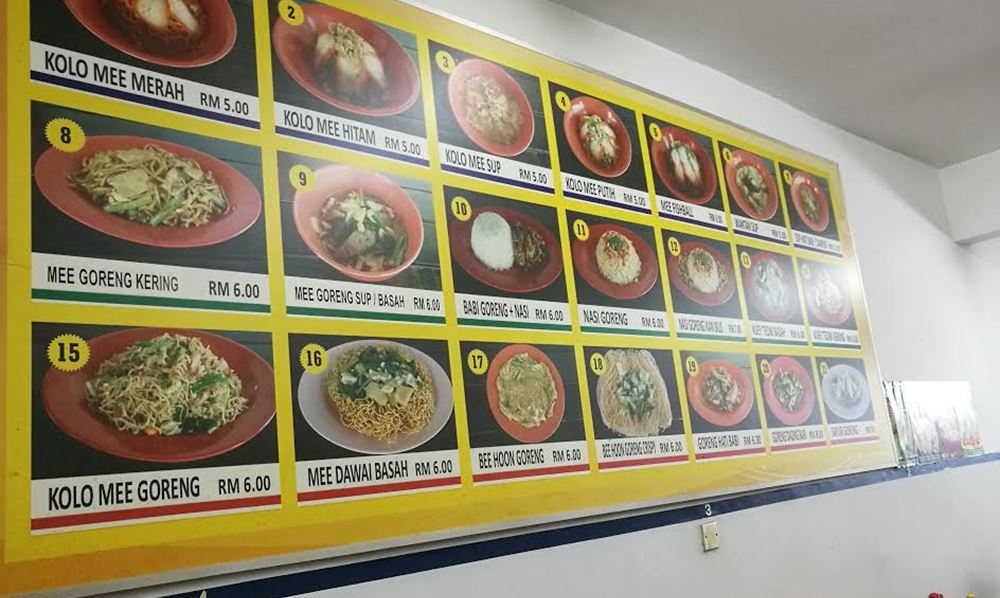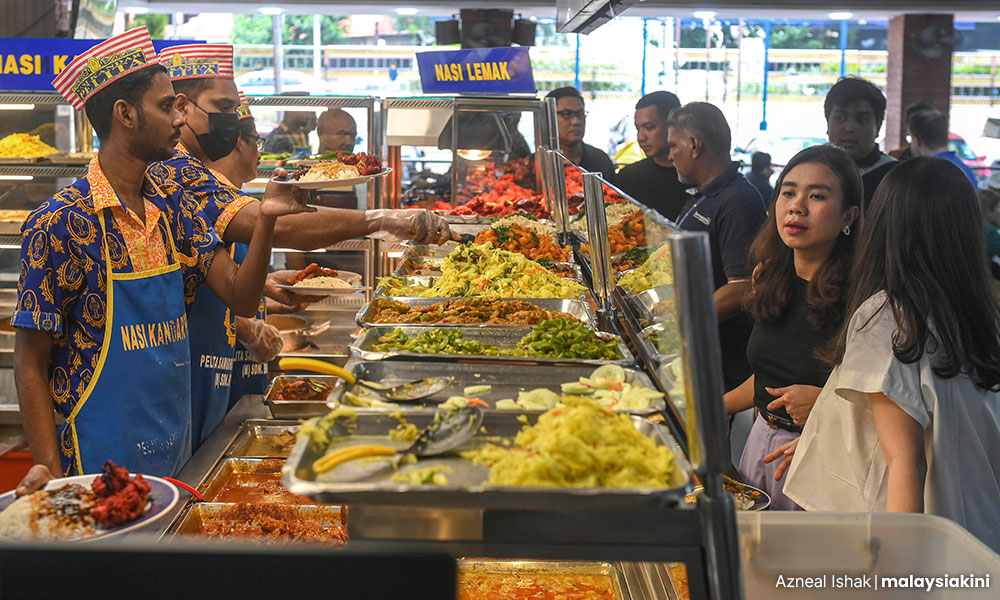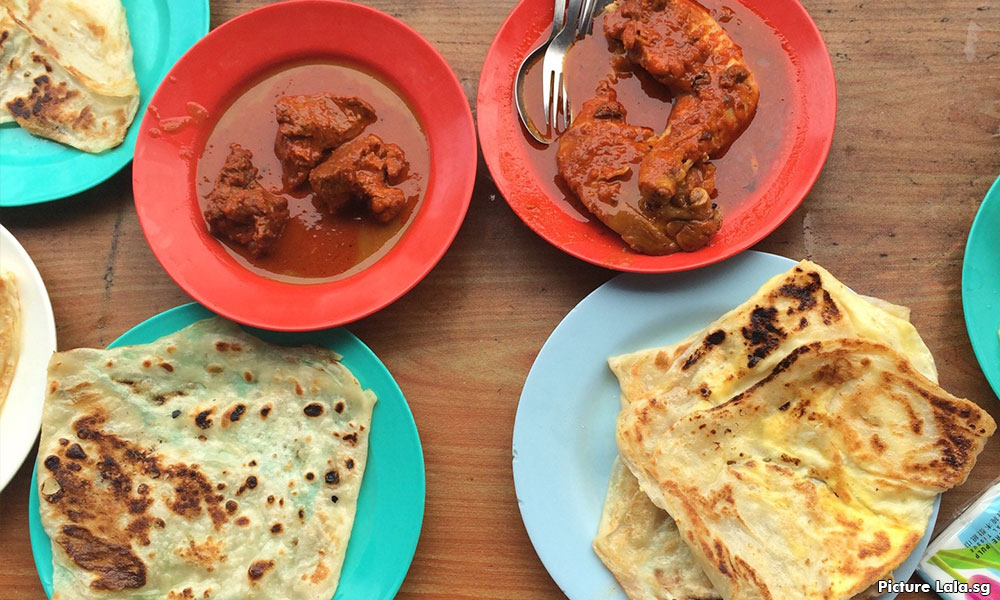In 2016, the Shah Alam Sessions Court fined a restaurant chain’s chief executive officer RM45,000 for profiteering.
He was charged with, among others, raising the price of the Pepsi drink at the Secret Recipe Cakes and Cafe, Subang Parade branch, Subang Jaya, from RM4 to RM5, based on the price tag exhibited.
There was no trial per se, so the law on profiteering could be tested, as he admitted increasing the drink’s net profit margin by 24 sen per unit - from 77 sen to RM1.01.
Ironically, the charges against the company were withdrawn, and it was reported that the CEO was charged in his individual capacity - whatever that means.
In January, the Kedah division of the Domestic Trade and Cost of Living Ministry issued a notice against a restaurant in Pantai Chenang, Langkawi, for charging RM20 for a plate of ayam goreng kunyit.

According to Kosmo, its enforcement head Effendi Rajini Kanth said a Notice of Confirmation of Goods Information was issued after a customer’s post about her expensive meal went viral on social media.
Upon inspection, they found 10 sets of menus, the price of which was recorded as RM20 for the chicken.
The price was displayed in this case, but Effendi said that the notice was issued because the restaurateur “needs to justify the value or cost associated with that food price.”
Last week, it was reported that the Negeri Sembilan division of the Domestic Trade and Cost of Living Ministry issued a compound fine to a restaurant owner in Lukut for charging RM10 for a 1.25-litre bottle of mineral water.
During an operation following a complaint, the shop was also found to have failed to display price tags on the mineral water offered for sale.
A statement added that this breached the Price Control and Anti-Profiteering (Price Marking for Goods and Services Charges) Order 2020.
Fallibility of law
These three incidents reflect the fallibility of the law and its selected application, which overlooks and ignores big businesses.
Do food and beverage establishments have to justify the value or cost associated with the food?

A glass of kopi costs RM1.20 at the warung, RM2.50 in a kopitiam or mamak restaurant, RM10 when served in a paper cup at one of the coffee chains, and RM18 in a five-star hotel.
How does the hotel justify charging more than seven times more than the restaurant? So, who is profiteering?
It does not matter if an assistant in the warung, or barista or chef wearing fancy clothes makes the coffee. The ingredients are basically coffee powder, milk or cream, and sugar.
What should the selling price be?
The mechanism to determine when profit is unreasonably high is by considering the following factors in the Price Control and Anti-Profiteering Act 2011:
any tax imposition;
the supplier’s cost;
supply and demand conditions;
the conditions and circumstances of geographical factors or the product market; or
any other relevant matters in relation to the prices of goods or charges of services.
Shortly after its implementation in April 2011, the then Deputy Domestic Trade, Cooperatives and Consumerism (as it was then known) Minister Tan Lian Hoe said the act would allow action against traders who indiscriminately raised prices.
“Through this legislation, we aim to rein in irresponsible traders who engage in profiteering, especially during the festive seasons and in times of crisis,” she said.
In 2014, I wrote: “Three years later, the authorities are still trying to figure out how to stem the soaring prices, but they are bewildered by how this all-conquering piece of legislation will help.
“Does opening a packet of noodles and pouring boiling water into it warrant a RM5 price tag?
“On the same token, would paying RM20,000 for an approved permit to import a car be profiteering? After all, the government gives them free of charge, and no one screams ‘profiteering’.”
What is fair, what is profiteering?
Can anyone decide what rate of profits would be deemed fair and what would be profiteering?

So, is charging RM35 for a roti canai and dhal curry in a five-star hotel not deemed profiteering? The ingredients and the processes of making are the same. So, why go after a restaurant that increases the price by 10 sen instead of the profiteer who sells it for RM35?
In Selangor, commercial establishments are charged RM2.94 per 1,000 litres of water; hence, one litre costs a fraction of a sen, or 0.00294 sen, to be exact.
Restaurants use 250cc glass or plastic containers, and the cost per container goes down to 0.000735 sen.
So, where is the justification for charging 40 sen for air suam (warm water) or 60 sen for ais kosong (iced water)?
Who decides the percentage of profits a trader can make? Experience has shown that this is impossible for various reasons.
The trader can charge what he likes if he complies with the requirement that the consumer knows the price he must pay. Hence, a price tag or a list of prices (including restaurant menus) will suffice.
So, the authorities’ periodic charade of “we will take action against price increases” must stop. It must be left to the adage caveat emptor - let the buyer beware.
There may be laws to protect consumers from unscrupulous sellers outright lying about their products or services. Still, these laws are not foolproof - the buyers are responsible for thinking for themselves.
The digital and social media revolutions make it easier for the authorities to spread this message instead of repeating the usual tale of being able to act against price increases. - Mkini
R NADESWARAN is a veteran journalist who writes on bread-and-butter issues. Comments: citizen.nades22@gmail.com
The views expressed here are those of the author/contributor and do not necessarily represent the views of MMKtT.



No comments:
Post a Comment
Note: Only a member of this blog may post a comment.